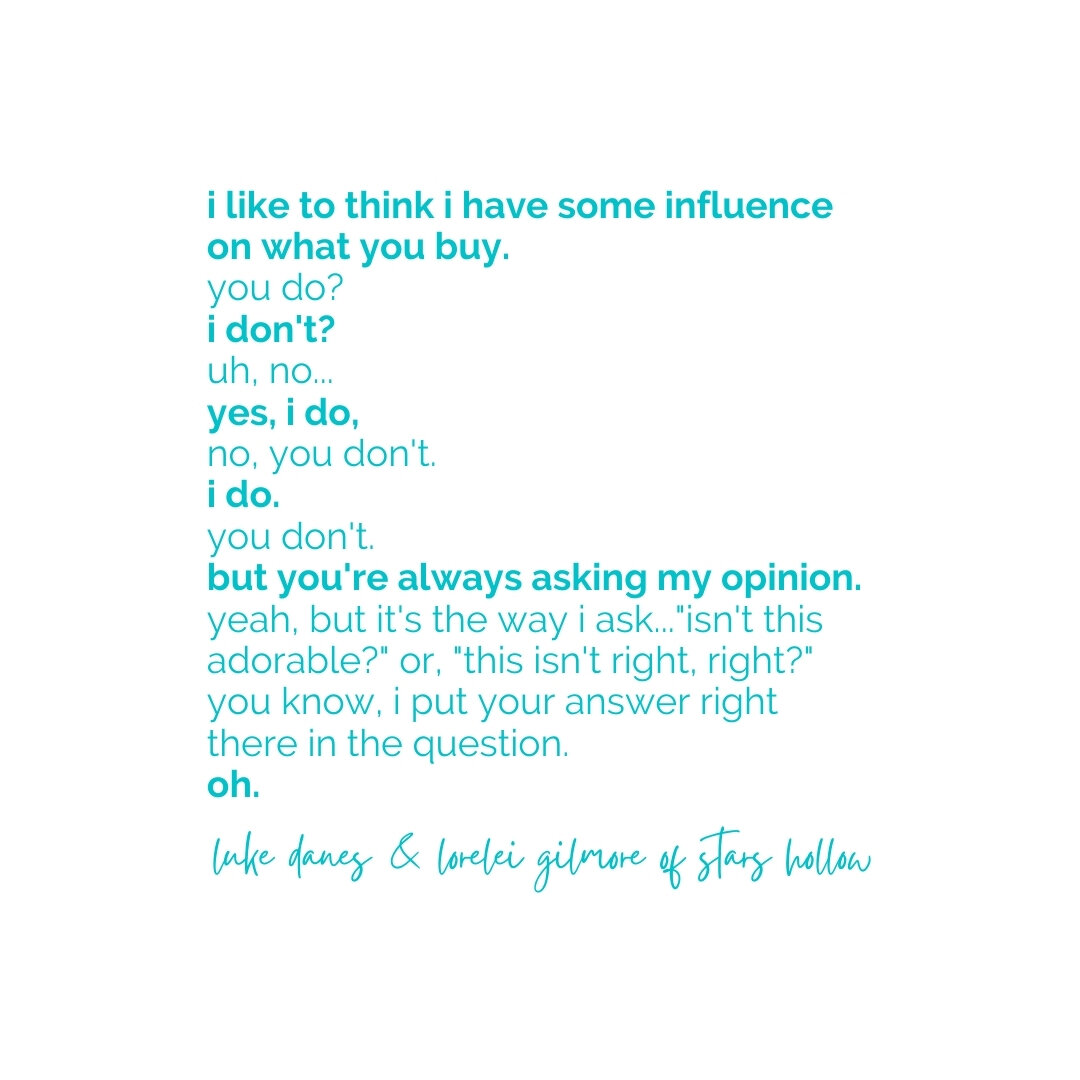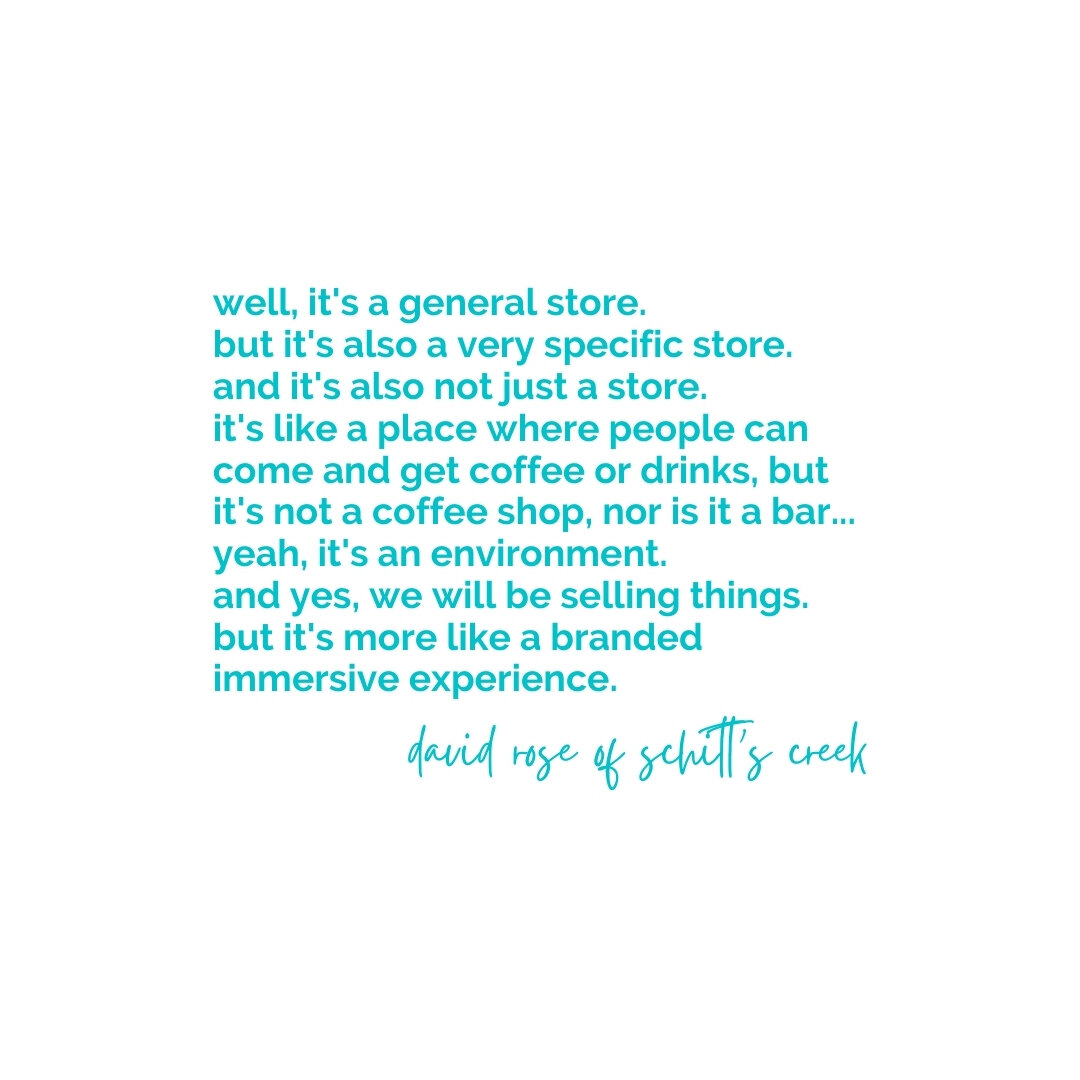Wild guess: you’re probably watching a lot more (streaming) TV these days than ever before. Am I right?
No judging here – we’re big fans of the telly (and pop culture, in general) at our casa. Sitcoms and game shows, dramatic series and food/travel documentaries, talk and comedy, action/adventure/sci-fi, sports and reality TV (especially those of the dancing and cooking variety), children’s programming, you name it.
Some may say that those endless hours of television viewing are a bit of a time suck. Maybe so. Though I subscribe to the saying, “if you learned something, it’s not a waste of time.” It got me thinking about what lessons I’ve learned from all these TV shows we’ve been binging during quarantine. These three marketing lessons stood out. Here goes…



1. Everyone has (some degree of) influence.
Contrary to popular belief, you don’t need tens of thousands (or millions) of followers to be an “influencer”. And influencers aren’t only on social media. Anyone can have influence. Think of that fellow shopper at the grocery store who isn’t too shy to share how amazing that particular brand of yogurt is. Or that friendly neighbour who raves about the new pizzeria that just opened down the street. Or the random pet owner you meet who dishes on the best dog parks in the city.
I’ve learned many a life lesson and random bit of pop culture trivia from The Gilmore Girls, and this witty banter between Luke and Lorelai on a shopping trip in Stars Hollow (S6:E20) was definitely a moment that stood out to a marketing nerd like me. Despite saying at first that Luke has no influence on what she buys, Lorelai goes on to say that she bought a blouse once just because Luke liked it — and then came the eureka moment that Luke had a hand in picking out many of her favourite clothes. So I guess you could say that even fictional characters have some degree of influence?
2. A simple elevator pitch is best.
This scene in Schitt’s Creek (S3:E8) made me laugh. It’s a perfect example of how someone can have a fantastic concept for a business or product or service, but no idea how to explain it in an easy-to-digest way. (Spoiler alert: David and Patrick did eventually figure out how to articulate the Rose Apothecary brand in a simple and elegant fashion.)
The lesson here? If you don’t know what your product/service/company does, how do you expect your customers to know? Be specific, not vague. Keep it simple, not convoluted. Avoid buzzwords if you can. Be relevant. A good rule of thumb is to explain how you help and who you help.
[your brand] helps [your audience] [do what].
Here’s an example from yours truly: Maven & Mention helps community-minded brands tell their stories.
The beauty of a simple elevator pitch? Better clarity about your offering and your target audience – and a helpful guidepost for your content strategy and how you talk about your brand.
3. Sometimes being too clever misses the mark.
Ever have one of those moments when you coin a new(-to-you) phrase or take a pun to a whole other level? You laugh to yourself and think, “I’m hilarious… and so clever.”
So it might sound good in your head, but when you say it out loud or see it in written word, not so much. This quirky tagline from Superstore (S4: E7) was part of a new campaign to get Cloud 9 employees to be more friendly to customers — except it totally got lost in translation and mispronunciation. (Oops.)
The lesson here? Don’t try to be too clever. Made-up words rarely resonate — even if they sound cute with your brand. And, to draw inspo from that popular teen comedy Mean Girls: “Stop trying to make fetch happen.” (Sorry, Gretchen Wieners.)
Ok, I’ll get off my soapbox now and just enjoy a good television episode for what it is. Storytelling and entertainment, right?
Looking for a fresh take on your content marketing? I can help. Let’s chat.
-michelle

